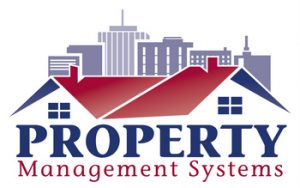By Property Management Systems
PORTLAND, Ore. – If you’ve owned Portland Oregon Rental Property for any length of time you know from experience that the security deposit return can become a “headache” due to wear and tear issues but what exactly is “normal” wear and tear and what’s not normal wear and tear?
If you’re confused about how to define wear and tear or would just like to make sure that you’re classifying it correctly, this article will break down wear and tear so you will be more knowledgeable about one of the most important aspects of owning rental property.
Normal Wear And Tear
Thanks to www.usleagal.com we know that normal wear and tear is defined as any type of deterioration which is unavoidable like carpets that need to be cleaned, wood floors that need to be refinished or walls which have to be repainted.
Reasonable wear and tear is a term often found in leases to limit the tenant’s responsibility to repair or repaint the premises upon leaving. In general, the longer the time of tenancy, the more wear and tear can be expected. Litigation dealing with reasonable wear and tear between landlord and tenant occurs most often when there is a deposit for any damages “beyond reasonable wear and tear.” Reasonable wear and tear is generally defined as unavoidable deterioration in the dwelling and its fixtures resulting from normal use. For example, carpet wear due to normal traffic is wear and tear, while a cigarette burn is avoidable and constitutes damages.
What amounts to reasonable wear and tear must be judged bearing in mind the purposes for which the premises were leased and the nature of the tenant’s business. Wear and tear can be defined to different degrees according to the state of residence. There tends to be a great deal of ambiguity and subjectivity in this area. Normal for one individual can and will be vastly different from another individuals perception of normal. When negotiating the lease, a tenant should make sure that the landlord is responsible for all structural repairs, repairs attributable to structural defects and weakness and repairs which are necessary as the result of faulty or inadequate design, workmanship or materials.
http://definitions.uslegal.com/r/reasonable-wear-and-tear/
Normal Wear And Tear Is Expected
The reality with Portland Oregon Rental Property is that the longer you have tenants living in your rental property you will be able to expect normal wear and tear from them but you may also be able to expect abnormal wear and tear as well.
Abnormal can be classified as anything from holes kicked in the doors or walls, broken or damaged window coverings or damage in the bathroom because your tenants may have at one time been growing something in the bathroom of your rental property.
How to Protect Yourself from Tenant Disputes Over Wear And Tear
Regardless if it’s abnormal or normal wear and tear you can protect your best interests and stop disputes with your tenant from occurring by taking pictures and video of your rental property BEFORE your tenant moves in just so you have documented proof of the shape your Portland Oregon Rental Property is in after they move out.
Besides pictures and videos you should also have documented proof of what’s been done to the rental property before, during the time that the tenant has lived there and after just so you clearly know how to respond to your tenant if they have a dispute with you over the security deposit because you took a percentage of the deposit due to wear and tear issues.
As a landlord, you have the duty of accounting for or refunding to the tenant any refundable deposits upon termination of the tenancy. In order to keep all or part of the deposit, you must give the tenant, within 31 days after termination, a written accounting that states specifically why you kept a portion or all of the deposit. If you do not comply with this requirement, the tenant can sue you for twice the amount of the deposit.
https://www.osbar.org/public/legalinfo/1247_RightsDutiesLandlords.htm
About The Security Deposit
As used in this section, security deposit includes any last month’s rent deposit.
(2)(a) Except as otherwise provided in this section, a landlord may require a tenant to pay a security deposit. The landlord shall provide the tenant with a receipt for any security deposit the tenant pays. The landlord shall hold a security deposit or prepaid rent for the tenant who is a party to the rental agreement. A tenant’s claim to the security deposit or prepaid rent is prior to the claim of a creditor of the landlord, including a trustee in bankruptcy.
(b) Except as provided in ORS 86.782 (Sale of property) (10), the holder of the landlords interest in the premises at the time the tenancy terminates is responsible to the tenant for any security deposit or prepaid rent and is bound by this section.
(3) A written rental agreement, if any, must list a security deposit paid by a tenant or required by a landlord.
(4) A landlord may not charge a tenant a pet security deposit for keeping a service animal or companion animal that a tenant with a disability requires as a reasonable accommodation under fair housing laws.
(5)(a) Except as otherwise provided in this subsection, a landlord may not change the rental agreement to require the tenant to pay a new or increased security deposit during the first year after the tenancy has begun. Subject to subsection (4) of this section, the landlord may require an additional deposit if the landlord and tenant agree to modify the terms and conditions of the rental agreement to permit a pet or for other cause and the additional deposit relates to the modification. This paragraph does not prevent a landlord from collecting a security deposit that an initial rental agreement provided for but that remained unpaid at the time the tenancy began.
(b) If a landlord requires a new or increased security deposit after the first year of the tenancy, the landlord shall allow the tenant at least three months to pay the new or increased deposit.
(6) The landlord may claim all or part of the security deposit only if the landlord required the security deposit for any or all of the purposes specified in subsection (7) of this section.
(7)(a) The landlord may claim from the security deposit only the amount reasonably necessary:
(A) To remedy the tenants defaults in the performance of the rental agreement including, but not limited to, unpaid rent; and
(B) To repair damages to the premises caused by the tenant, not including ordinary wear and tear.
(b) A landlord is not required to repair damage caused by the tenant in order for the landlord to claim against the deposit for the cost to make the repair. Any labor costs the landlord assesses under this subsection for cleaning or repairs must be based on a reasonable hourly rate. The landlord may charge a reasonable hourly rate for the landlords own performance of cleaning or repair work.
(c) Defaults and damages for which a landlord may recover under this subsection include, but are not limited to:
(A) Carpet cleaning, other than the use of a common vacuum cleaner, if:
(i) The cleaning is performed by use of a machine specifically designed for cleaning or shampooing carpets;
(ii) The carpet was cleaned or replaced after the previous tenancy or the most recent significant use of the carpet and before the tenant took possession; and
(iii) The written rental agreement provides that the landlord may deduct the cost of carpet cleaning regardless of whether the tenant cleans the carpet before the tenant delivers possession as described in ORS 90.147 (Delivery of possession).
http://www.oregonlaws.org/ors/90.300
Get Property Management for Your Portland Rental Property
To get property management for your Portland Rental Property contact Property Management Systems today by calling us at (503) 515-3170 or CLICK HERE to connect with us online.





